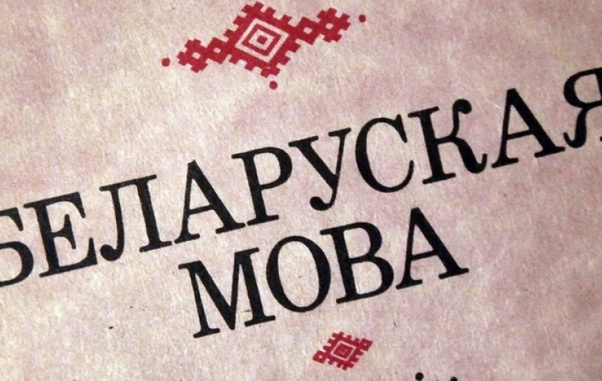
The Belarusian Language and the Question of National Identity: What Link?
Publication: Eurasia Daily Monitor Volume: 15 Issue: 156
By:

Three habitual criticisms have long been leveled at Belarus: It is too authoritarian, too close to Russia, and both ills stem from over two decades of uninterrupted rule by President Alyaksandr Lukashenka, “Europe’s last dictator.” “News” stories about his government being on the verge of collapse emanate from the Belarusian opposition with such bewildering frequency that they may, counterintuitively, be one of the major factors contributing to the regime’s resilience. After all, someone who is obsessively being told that his or her fall is imminent is all that more likely to attach him or herself to steady ground. And in contrast to the opposition—more reliably rooted in foreign donor agencies (mostly Western but occasionally Russian, too) than in Belarusian society per se—the regime has not only persevered but delivered. By the standards of developed Western European democracies, Belarus’s socio-economic success may be modest; but on many counts, it exceeds those of Russia let alone Ukraine, the world’s other two majority East Slavic countries. The assessment to that effect coauthored by this author seven years ago is by no means obsolete (Researchgate.net, 2011, accessed November 1, 2018). On the contrary, if updated, it would reflect an even sharper Belarusian advantage over its cultural brethren. In 2018, Belarus was ranked 53rd on the United Nations’ Human Development Index (Undp.org, 2018); the incomparably more resource-rich Ukraine was 88th. Little wonder, Lukashenka’s popularity rating in neighboring Ukraine is still sky-high (Texti.org.ua, October 19). Russia scored 49th place due to its hydrocarbon exports, which have contributed to a GNI per capita of $24,000 versus Belarus’s $16,000.
More subjective visual impressions reflecting the upkeep of Belarus’s cities, towns and roads can further boost those same conclusions—and may arguably even place Belarus squarely above its two Baltic neighbors, Latvia and Lithuania. Just days ago, Belarus found itself on the list of ten countries recommended to visit in 2019 by Lonely Planet, a prestigious international guidebook publisher. It praises Belarus for the simplification of its visa-regime (it was just extended to 30 days for citizens of 80 countries) and as a place with attractive cafes, nightlife, a restored old-town section of downtown Minsk, and the venue for the 2019 European Games (Tut.by, October 23).
Belarus is certainly not lacking in persistent problems, but presenting it as just a repository of Soviet-style totalitarianism and even atavism, as Valer Karbalevich of Radio Liberty frequently does (Svaboda.org, October 24), increasingly veers away from objective reality. Illustratively, a recent piece in Radio Liberty has tried to argue that the rejuvenation of villages in Belarus is a complete fiction simply because not all of the country’s traditional rural villages have survived (Svaboda.org, October 21). Notably, the piece made no effort, however, to compare the situation in the Belarusian countryside with those in Russia, Ukraine or the Baltics.
Some bugaboos are more tenacious than others. Thus, predictions that Russia is about to annex Belarus any day now have developed into a cottage industry. Granted, one cannot say that there are no reasons to fuel such speculation (see EDM, September 19, October 3, 30). However, the voices behind such arguments tend to be Westerners, Russian political technologists or even social psychologists with no readily apparent insight into the Kremlin’s decision-making (Svoboda.org, October 24). Interestingly, the only truly informed expert, Yury Drakakhrust of the Belarusian Service of Radio Liberty, immediately dismissed those charges, but his voice was drowned out by the opinions of other reputable experts.
The second bogeymen seems more serious. Belarusians, apparently, have little taste for speaking Belarusian. Russian is by far the prevalent language of their communication. The background of this situation is quite complicated; but what is clear is that this is unlikely to change any time soon, if at all. Still, some Belarusian authors continue to couch that reality in tragic existential terms (Svaboda.org, October 26). At the October 24 Forum of Belarusian and Ukrainian regions in Gomel, at which the presidents of both countries participated, Ukrainian Deputy Prime Minister Hennadiy Zubko suggested that while he himself was using Ukrainian during the forum, he would be glad if his hosts used Belarusian. Yet, the Belarusian participants were unfazed and continued to speak in Russian (Nasha Niva, October 26). No explicit repudiation of Zubko’s words followed. However, the Ukrainian official’s tone deafness was ultimately reflected not so much in repudiations as in ridicule, which was pervasive across Belarusian online social networks. For instance, the journalist and author Kirill Ozimko, born and raised in Grodno, quipped that he awaits “the deputy prime minister of Ukraine to propose that the Austrians speak Austrian, the Irish speak Irish and [United States President Donald] Trump speak American” (Ozimko, October 26). Others opined that with two official languages, Belarusians should not be lectured on which of them to use.
Language is frequently one of the most readily apparent markers of identity and ethnic nationalism. But in Belarus, this link has not mustered much popular support to date. In contrast, Belarusians are quickly and increasingly redefining their identity based on civic nationalism, a.k.a. patriotism, of which there are numerous reminders. The aforementioned Yury Drakakhrust made one of his seminal contributions to Belarusian identity studies as early as 1998, when he published the article “Belarusian Nationalism Speaks Russian.” Since that time, civic nationalism has advanced further. According to government-friendly political commentator Alexei Dzermant, it is based on three pillars: the social welfare state; inter-ethnic tolerance and recognition of World War II as the formative experience of all Belarusians; and healthy conservatism, including attachment to traditional family (Sonar 2050, October 19).
The emphasis on civic nationalism has direct policy implications. Belarusians are likely to balk at being lectured on which language to speak and which aspects of their historical memory to emphasize. And if Western embassies in Minsk and, even more importantly, Belarus’s international negotiation partners learn this lesson quickly, positive results can be expected without much delay.



